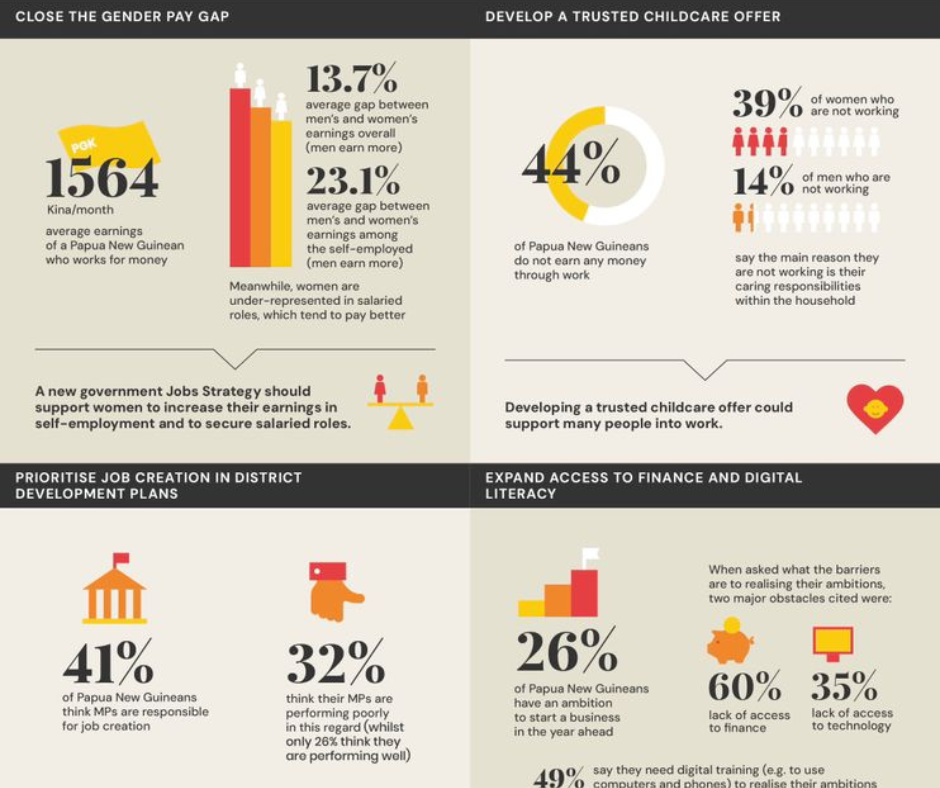A survey carried out by the Business Coalition for Women (BCFW) has suggested for the government to modernize the Employment Act.
The suggestion among others, draws on evidence from BCFW’s nationally representative survey of 2,026 Papua New Guineans, published earlier this week.
The survey is the first in recent years to collect data on earnings of Papua New Guineans and the first to estimate the gender earnings gap in PNG.
With the budget sitting this week, BCFW has put forward three main suggestions for the Marape-Rosso Government to consider. The major one is to “Commit to Modernizing the Employment Act”.
The organization that forces on empowering women leaders believes that this would be a “quick win” for the government on jobs – benefitting both women and men.
While the organization acknowledges the government’s keen interest in reviewing the Employment Act, they suggest the following to be included in the amendment;
· Introduce paid maternity leave (currently the Act includes only unpaid maternity leave).
· Introduce paid paternity leave for fathers (currently, there is no paternity leave).
· Strengthen anti-discrimination protection for women who are pregnant or are new
mothers (e.g. prohibit dismissal of pregnant workers).
· Remove Sections 98 and 99 which prohibit women work in underground mining,
heavy labour, and at night in industrial settings.
From it’s research, BCFW found that a sizable number of women (31%) would be interested in night shift, physically arduous, or underground jobs.
Apart from this, BCFW also proposed “Include job policies targeting women” and “The Budget should prioritise family and household care policies”.
Both they say will be popular with the public – among both women and men.
Other analysis show that improving the prospects of work for women will benefit PNG’s
economy as a whole.
“Our findings suggest Papua New Guineans agree: 69% say PNG would be better off if more women had the opportunity to work.
“We also found that Papua New Guineans would support policies to promote women’s work.”
Over 70% – including among men and young people – think the government should develop
jobs policies specifically targeting women.
“Our findings show that household care is the main reason Papua New Guineans are out of the labour force or are underemployed.
Among those not working, 39% of women and 14% of men cite household care responsibilities as the reason for not working.
Among those who are working, 51% of women and 36% of men cite household care duties as their main reason for not working as much as they would like to.
For the remainder (who are not currently interested in such roles), they too could be interested – if safety concerns were addressed.
“We urge the government to consider these three suggestions for inclusion in the 2025
Budget. Acting on them would benefit the PNG economy, for all of us, whether women or
men.”
The full survey report, ’PNG Labour Market Survey: Earnings, Gender, and Ambitions –
Findings, Analysis, and Policy Implications’, is available on BCFW’s website.


Comments are closed.